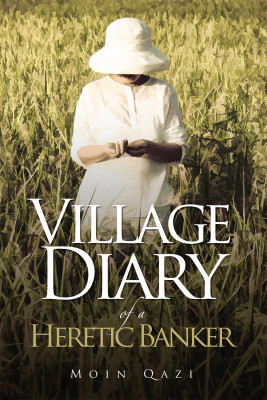Village Diary of a Heretic Banker(English, Hardcover, Moin Qazi)
Quick Overview
Product Price Comparison
VILLAGE DIARY OF AHERETIC BANKER is more a diary than an instructive guide. The diaryprovides the flavour of the authorŌĆÖs personal experiences as a rural banker andhis engagement with the poor in the remote crannies of India. The seed aroundwhich the book crystallises is the intrinsic tenacity and grit of poor ruralwomen that can be harnessed into energetic powerhouses to drive our ruralsociety onto the road to prosperity. The book carries in its pages the poignantnostalgia of the author for villages but it is also tinged at places with rageand despair. The message in this book is that there is no grand, universalformula for poverty reduction. The battle has to be fought on several frontsand what works in one place does not necessarily work everywhere. The wayforward lies in grassroots field experiments for understanding the causalrelationships in poor peopleŌĆÖs behaviour and in learning by doing. The authorŌĆÖs faith in poor peopleŌĆÖsability to climb out of the rut is unshakeable and his core belief isgradualism. The author believes that lasting social change most oftenŌĆöandperhaps alwaysŌĆöcomes slowly rather than in a burst of revolutionary fervour. Itis this belief that has shaped his work. He also believes that lasting changecan be effected only when women are given equal opportunities for financialempowermentThe author firmly believes that it is possible to eliminate poverty inour countryŌĆöprovided we re-examine the received wisdom of our assumptions. Thepoor are poor not because they are unskilled or illiterate but because theycannot retain the returns of their labour. They neither own capital, nor doesanyone give them access to credit, except on the most unreasonable terms. Theylive on the edge, in constant fear of a catastrophe or tragedy, but they haveno insurance because insurance companies consider them a losing proposition.And the StateŌĆÖs social safety nets are not only grossly inadequate but mired incorruption and bureaucratic red tape.Duringhis efforts in development finance and rural development work for over threedecades, the author has seen projects and strategies succeed as well as fail.He has seen misguided project designs, poor implementation and squandering oflarge sums of money. But he also witnessed incredible achievements. Whendevelopment works well, he argues, it can transform lives by providing theunderprivileged the capital and knowledge that can open up opportunities forthem and reduce their poverty.


